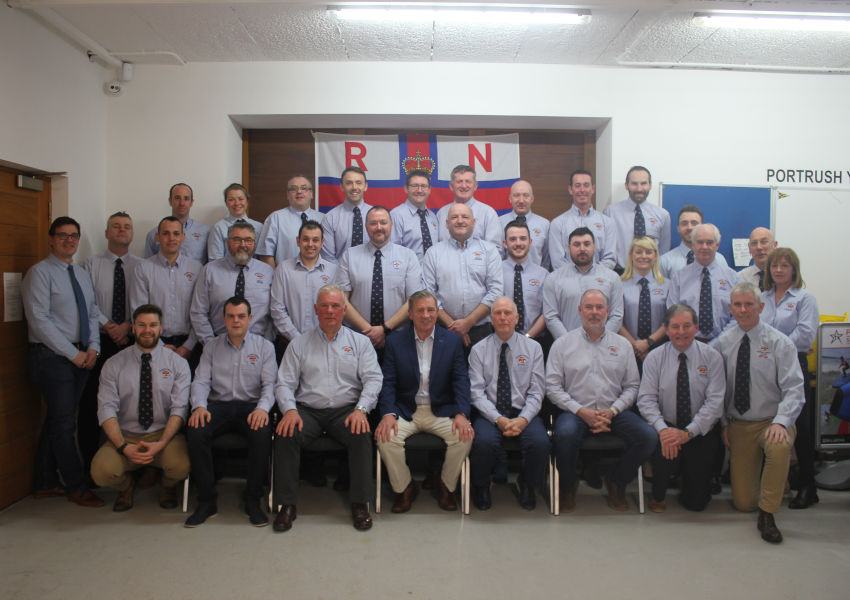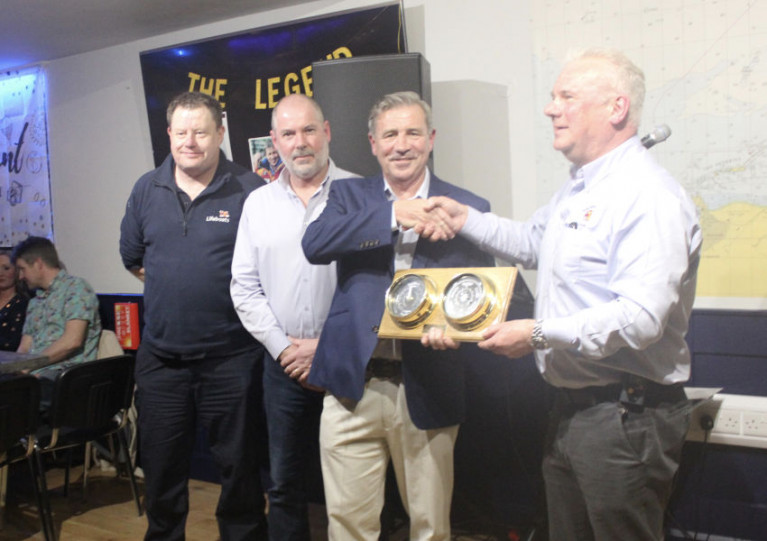Lifeboat teams from Portrush and farther afield gathered in the North Coast town on Friday (28 February) to bid farewell to one of their own, as mechanic/coxswain and crew member Anthony Chambers retires after more than 40 years.
The Chambers family have been linked to Portrush RNLI in Northern Ireland for generations. Anthony’s father Gilbert and brother Derek were both mechanics on the lifeboat before him, and Anthony’s two nephews, Jason and Karl, are following the family tradition of being volunteer crew and an integral part of the station.
But Friday night was all about Anthony — celebrating his career, his retirement, remembering great rescues and the difference he has made to so many people.
Anthony’s most memorable and heroic ‘shout’ was the rescue of two young boys from a cave in August 2009 against a rising tide.
Part of the account of the rescue said: “Anthony fought against the elements in almost total darkness, being smashed against the cave wall … rescuing the boys one by one. It took him 30 minutes to complete the difficult and treacherous return swim twice with the rising tide against him.”
As a result, Anthony was presented with a bronze medal for gallantry in May 2010 by HRH Prince Michael of Kent at the Barbican in London, and fellow crew members with him on that night were presented with a letter of thanks from the RNLI.
This was only one example of Anthony’s bravery and on Friday night, the lifeboat crew, fundraising team and friends gathered in Portrush Yacht Club to celebrate, present gifts and reminisce of rescues gone by.
 Portrush lifeboat crew with Anthony Chambers | Photo: RNLI/Judy Nelson
Portrush lifeboat crew with Anthony Chambers | Photo: RNLI/Judy Nelson
It was a testament to Anthony’s popularity that Portrush Yacht Club was packed to capacity with ex-crew members and representatives from Lough Swilly, Red Bay, Larne, Ballyglass, Portpatrick and Donaghadee lifeboat stations.
It was an opportunity for Anthony’s family, his wife Maryna, son Alistair and stepdaughter Louise, to meet so many of his colleagues in the RNLI and hear of his many exploits.
The formal part of the evening was introduced by MC and fellow lifeboat crew member Tim Nelson. Volunteer coxswain Des Austin presented gifts on behalf of the crew and Keith Gilmore, lifeboat operations manager, presented a vellum and letter of thanks from Mark Dowie, chief executive of the RNLI.
John Martin from the fundraising team also presented gifts on behalf of the team. Shirley Austin, Des’s wife, presented Anthony’s wife Maryna with flowers on behalf of the crew.
Beni McAllister, honorary secretary of Portrush Yacht Club, presented Anthony with a life membership of the club in recognition of its close links with the lifeboat station.
Anthony took to the floor to thank everyone for the gifts and good wishes. He went on to wish the current crew well and also the new coxswain/mechanic Dave Robinson, who takes over the helm.































































